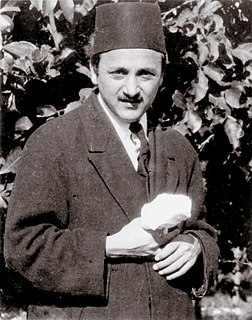A Quote by Carl Sagan
I consider it an extremely dangerous doctrine, because the more likely we are to assume that the solution comes from the outside, the less likely we are to solve our problems ourselves.
Related Quotes
I teach something called The Law of Probabilities, which says the more things you try, the more likely one of them will work. The more books you read, the more likely one of them will have an answer to a question that could solve the major problems of your life.. make you wealthier, solve a health problem, whatever it might be.
It's an empirical question whether training makes one more or less likely to get in a fight outside the gym. In some ways, I'm probably more likely to get into a fight, because I feel more competent, and I know what it's cost me in the past to back down from fights, and I don't want to feel that way.
There is a perverse comfort zone to living a small life. For women, that zone has to do with the fact that we're less likely to be challenged, we're less likely to be criticized, we're less likely to be called angry or strident, if we simply go along and acquiesce to the prevailing patterns of thought and behavior.
The positive outlook that optimists project does not come from ignoring or denying problems. Optimists simply assume that problems are temporary and can be solved, so optimists naturally want more information about problems because then they can get to work and do something. Pessimists are more likely to believe that there is nothing they can do anyway, so what's the point of even thinking about it?
Studies show that the more often families eat together, the less likely kids are to smoke, drink, do drugs, get depressed, develop eating disorders and consider suicide, and the more likely they are to do well in school, delay having sex, eat their vegetables, learn big words and know which fork to use.
Several of our children have married outside my faith. Would I prefer they marry within their religion? Yes, because I know that marrying outside the family faith will very likely bring them more problems-but not from me. My job is to accept them and love them, not to criticize them and make their lives more difficult.
People who believe that they are going to be excommunicated and shamed, or whatever other dark things may happen to them, are much less likely to enter open, loving relationships. And they are also much less likely to have the self-esteem that is required to be monogamous and loving. And in consequence, they are much less likely to create families.



































